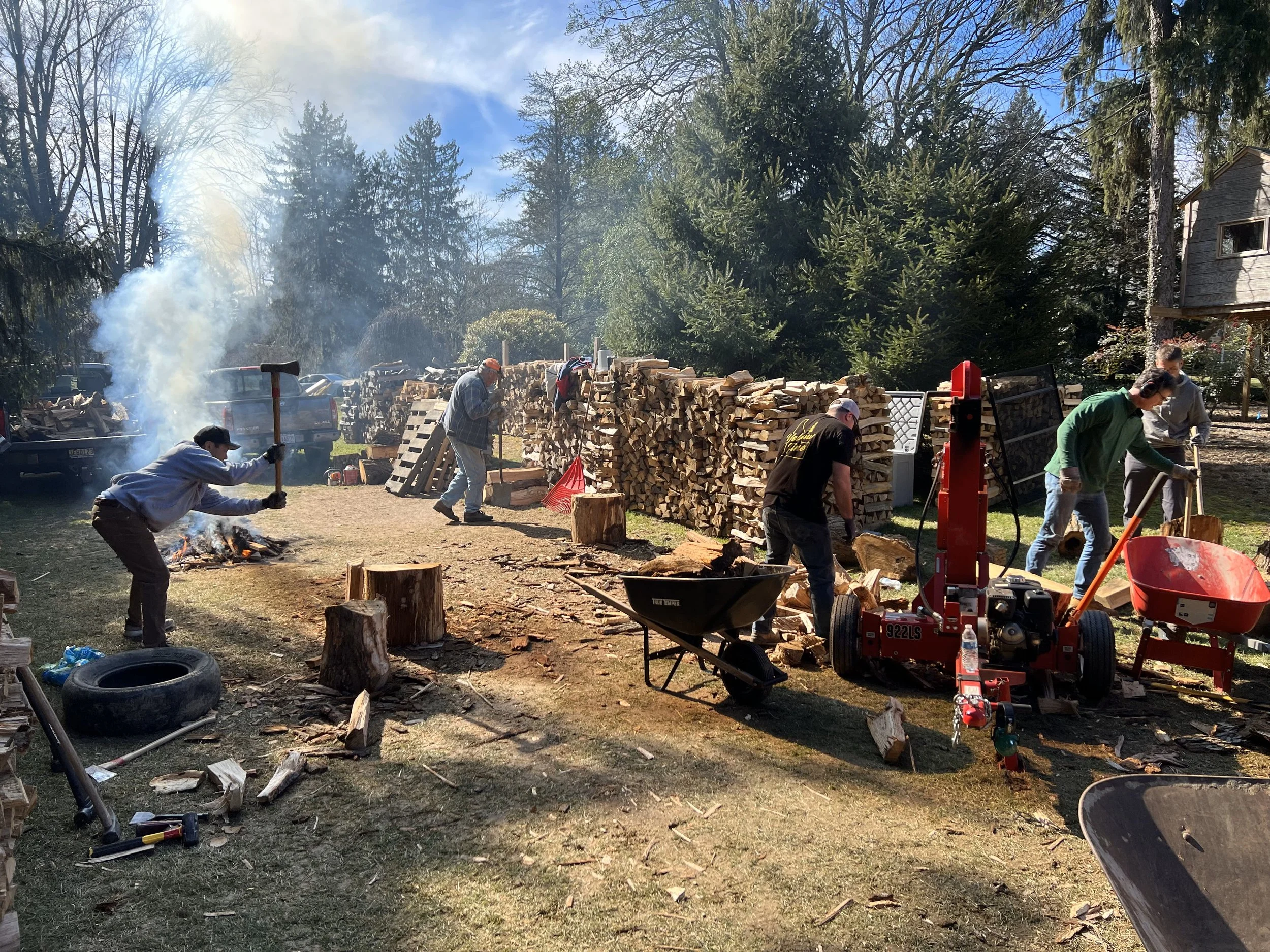
Embracing Uniqueness in Business Relationships
In a world where efficiency and predictability are often valued above all else, it’s easy to overlook the quirks, passions, and so-called "weirdness" that make people unique. But what if I told you that embracing these unique aspects of a person’s personality could be the key to building stronger business relationships, driving sales, and ultimately, ensuring long-term success? In this post, we’ll explore why it’s important to get to know what makes people tick—even if it’s a bit unusual—and how you can use this knowledge to build trust, solve real issues, and create lasting business partnerships.
The Power of Passion
Let’s start by talking about passion. We all have something that lights a fire in us, something that we could talk about for hours on end, even if it’s something others might consider odd or out of the ordinary. It could be a love for showing dogs, a fervor for collecting baseball cards, an obsession with pickleball, or any number of hobbies or interests that might be dismissed by those who don’t share the same enthusiasm.
These passions, however “weird” they may seem to others, are a fundamental part of who we are. They give us energy, joy, and a sense of purpose. When someone takes the time to understand and appreciate what we’re passionate about, it creates a connection that goes beyond the superficial. This connection is where the magic happens in business.
Why Weirdness Matters
When you’re trying to build a relationship with a potential client, partner, or even a colleague, it’s tempting to stick to the basics: talk about work, common goals, or industry trends. But if you want to stand out, if you want to build a relationship that’s based on trust and mutual respect, you need to dig deeper. You need to get weird.
Getting weird means being genuinely curious about what makes a person unique. It means asking questions that go beyond the usual small talk and finding out what really excites them. It’s about recognizing that what someone does outside of work is just as important as what they do in the office, and that these passions can provide valuable insights into who they are as a person.
Let’s take an example. Imagine you’re trying to close a deal with a client who’s an avid dog show enthusiast. You could focus solely on the numbers and the product, or you could take the time to learn about their passion for dogs. You could ask them about their latest competition, congratulate them on their wins, or even attend a dog show yourself. By showing an interest in something they care deeply about, you’re not just making small talk—you’re building a relationship based on mutual respect and understanding.
Article Continues Below
On most weekend mornings, you will find a scene like this one in my backyard. On this particular Saturday, my father joined in the action with other members of the “Baltimore Wood Society”. What started as a childhood chore of chopping firewood with my dad has evolved into a cherished tradition that brings us together. This image captures the essence of embracing our "weirdness"—finding joy in an unconventional hobby that connects us, strengthens our bonds, and reminds us that what makes us unique is worth celebrating.
Understanding the Person Behind the Passion
One of the most important aspects of getting weird is that it allows you to understand the person behind the passion. When you know what someone is passionate about, you can start to see how these interests influence their personality, values, and decision-making process. This knowledge is invaluable when it comes to providing the best service and solving their real issues.
For example, someone who’s passionate about showing dogs likely values discipline, attention to detail, and hard work. They’re used to setting goals, working toward them, and achieving results. They might also value community, as dog showing is a social activity that involves interacting with other enthusiasts. By understanding these aspects of their personality, you can tailor your approach to meet their needs more effectively.
If you’re selling a product or service to this person, you might emphasize features that align with their values—like quality, reliability, or the ability to customize to their specific needs. You might also take a more collaborative approach, involving them in the decision-making process and seeking their input on how to make your product or service work best for them. This not only helps you provide better service, but it also shows that you respect their expertise and value their opinion.
Building Trust Through Genuine Connections
At the heart of all successful business relationships is trust. Trust is what allows clients to feel confident in your abilities, what makes them willing to share their challenges with you, and what keeps them coming back for more. And one of the most effective ways to build trust is by making a genuine connection with someone based on their passions.
When you take the time to understand what someone is passionate about and show that you genuinely care, it sends a powerful message: “I see you, and I value you as a person.” This kind of connection is hard to fake, and it’s something that people remember. It’s what turns a one-time transaction into a long-term partnership, and it’s what sets you apart from competitors who are only focused on the bottom line.
Let’s consider another example. Say you’re working with a client who’s obsessed with collecting baseball cards. You could use this as a conversation starter, asking about their favorite cards or sharing a story about a rare card you once came across. But beyond small talk, you could also use this knowledge to build a stronger relationship. You might send them a thoughtful gift, like a vintage card they’ve been searching for or tickets to a baseball game. You could also use baseball analogies in your presentations, making the information more relatable and engaging for them.
These gestures show that you’ve taken the time to get to know them as a person, not just as a client. They demonstrate that you’re invested in the relationship and that you’re willing to go the extra mile to make them happy. And most importantly, they build trust—because when people feel understood and valued, they’re more likely to trust you with their business.
Article Continues Below
From Foster Care to Financial Literacy
A real-life example of discovering someon’e deeper passion
One of the most powerful aspects of getting to know someone’s passions is that it often reveals deeper, more personal layers of who they are. These insights can be transformative, not just for the relationship, but also for how you can best serve them. At Red Oak Financial, we had an experience that exemplifies this perfectly.
We were working with a client who, at first glance, seemed very private and reserved. In our initial meetings, we focused on the usual topics—investments, retirement planning, and estate management. But as we got to know them better, we started to notice that they had a particular interest in charitable giving, especially towards organizations that supported families and children.
Curious, we gently inquired about the motivation behind this passion. That’s when the client opened up about their upbringing in the foster care system. They shared with us that growing up in foster care was incredibly challenging, and it instilled in them a deep desire to create strong, stable families and to help others avoid the financial struggles they had faced. For them, financial literacy and responsibility weren’t just abstract concepts—they were vital tools that could change lives.
Understanding this about our client gave us a whole new perspective on how we could serve them. We realized that their financial goals weren’t just about securing their future; they were about making a meaningful impact on others. With this knowledge, we were able to tailor our advice to align with their values. We focused on strategies that would not only provide financial security but also enable them to support causes they cared about, such as setting up a foundation to promote financial literacy in underserved communities.
This deeper connection allowed us to provide advice that was truly personalized. We didn’t just help them manage their wealth; we helped them use it as a tool to fulfill their passion for building strong families and promoting financial education. This experience also strengthened our relationship with the client, as they saw that we genuinely understood and supported their goals. The trust that developed from this understanding was invaluable and laid the foundation for a long-term partnership.
By taking the time to understand the person behind the passion, we were able to provide advice that resonated on a deeper level and made a real difference in our client’s life. This is why it’s so important to embrace the “weirdness” and dig deeper—because that’s where you find the true heart of a person and the key to building lasting, meaningful relationships.
Embracing Weirdness in Your Business Culture
So how can you start embracing weirdness in your own business relationships? Here are a few tips:
Ask Open-Ended Questions: When you’re getting to know someone, ask open-ended questions that encourage them to share their passions and interests. Instead of asking, “What do you do?” try asking, “What do you love to do outside of work?” or “What are you passionate about?”
Do Your Homework: Spend some time learning about someone’s weird “thing” when time permits so you can show you are genuinely and authentically interested in what they are interested in. “Care about what the people you care about care about.”
Listen Actively: Once you’ve asked the question, really listen to the answer. Show genuine interest in what they’re saying, and ask follow-up questions to learn more. Remember, the goal is to understand what makes them unique, not just to make small talk.
Find Common Ground: If you share a similar passion, use it as a way to bond. If not, use their passion as an opportunity to learn something new. Either way, finding common ground—whether it’s a shared interest or a mutual respect for each other’s passions—can help you build a stronger connection.
Personalize Your Approach: Use the information you’ve gathered to tailor your approach to their needs. Whether it’s customizing your product offerings, using language that resonates with them, or simply showing that you remember what they care about, personalization is key to building trust and providing great service.
Celebrate Their Weirdness: Don’t just tolerate someone’s quirks—celebrate them! Recognize that these unique aspects of their personality are what make them special, and use them as a way to strengthen your relationship. Whether it’s sending a thoughtful gift or simply acknowledging their passion in conversation, small gestures can go a long way.
Conclusion: The Trust Factor
At the end of the day, business is all about people. It’s about building relationships, solving problems, and creating value. And one of the most effective ways to do this is by embracing the weirdness—the passions, quirks, and unique qualities that make each person who they are.
By taking the time to understand what makes someone tick, you’re not just building a business relationship—you’re building trust. And in a world where trust is often in short supply, that’s a powerful thing. So the next time you’re meeting with a client, colleague, or partner, don’t be afraid to get a little weird. You might just find that it’s the key to unlocking a deeper, more meaningful connection that leads to long-term success.
So let’s get weird—because when we do, we open the door to a world of possibilities that are anything but ordinary.

